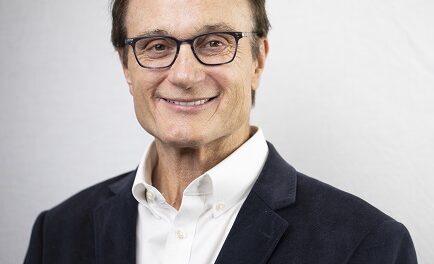 Doha (Qatar), Dubai and Abu Dhabi (United Arab Emirates) enjoy generous healthcare funding other places – including the United States – can only envy. Getting an insider’s look at these systems was the opportunity of a lifetime for 40 students and alumni of FIU College of Business Healthcare MBA.
Doha (Qatar), Dubai and Abu Dhabi (United Arab Emirates) enjoy generous healthcare funding other places – including the United States – can only envy. Getting an insider’s look at these systems was the opportunity of a lifetime for 40 students and alumni of FIU College of Business Healthcare MBA.
Spending almost two weeks this summer, the group, led by Professor Miriam Weismann, academic director of the College of Business’ Healthcare MBA program, visited hospitals, clinics, government health agencies and healthcare finance entities on the trip to the city of Doha in Qatar and the nearby cities of Dubai and Abu Dhabi, both in the United Arab Emirates, giving participants a detailed look at the international business side of healthcare.
“Qatar has one-eighth the population of Florida, unprecedented wealth and no poor people,” Weismann said. In both the UAE and Qatar, she explained, free health care is granted only to citizens, who make up just about 20 percent of the population. “If you are a citizen, they will pay for everything,” she said, noting that foreign workers must have jobs and employer-sponsored insurance — or leave. This structure ensures a system of universal health care for citizens.
Participants, who had to write a Health Policy Analysis Report, earned an Advanced Certificate in Global Healthcare Administration from the HCMBA and eight continuing education credits. The trip gave the students a chance to experience an approach to health care that, because of the population and government policies of the monarchies, is in some ways, a controlled experiment.
The royal families in the UAE and in Qatar have both underwritten awe-inspiring state-of-the-art healthcare building projects (including a branch of the Cleveland Clinic in Abu Dhabi). Still, students witnessed how ensuring quality care and encouraging efficiencies remains a challenge, Weismann said. Even with the push to hire more U.S.-trained doctors, many residents travel abroad for medical procedures because the regulatory infrastructure and quality control metrics have yet to be implemented in these countries, and some gaps remain in the medical procedures available.
Weismann noted that since all FIU Healthcare MBA students are working professionals, “they know how hospitals should look, how quality assurance works, and how quality metrics work.”
For students, it was a rare chance to witness initiatives aimed at building a regulatory healthcare infrastructure from the ground up. What most impressed HCMBA student Ramy Mitwalli about Abu Dhabi is how leaders are assembling world-class medical teams to meet the challenge of implementing the new healthcare infrastructure.
“They are attracting people from all over the world, and managing to create a culture (with English as the common language) that fosters a sense of community,” said Mitwalli, who expects to graduate from the HCMBA program in December and plans on becoming a physician.
Yet, Mitwalli said, “Is it sustainable?” This was a concern generally expressed by the students as they witnessed the massive amount of dollars going into creating a healthcare infrastructure still in its infancy in both the UAE and Qatar.
Still, he noted, “What I think is one of the greatest things is that they are learning from other countries’ mistakes as they look to become a global powerhouse in best practices. They are implementing what is most suitable for them.”
Weismann said she was surprised that, as the two Middle Eastern countries move away from full government support for a universal health care system, that they were considering the implementation of a multiple third party payer system similar to the one in the U.S. “Why go down that road given the known problems of that system in the U.S.?” Weismann said.


























